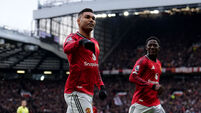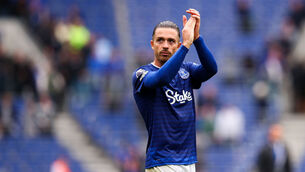The importance of being earnest: Delaney protected his loyalists and dispensed with dissenters.

It became a recurrent theme, on John Delaney visits to 2,000 clubs during his 14 years as FAI chief executive, to conclude by reciting the salutary advice of his mother Joan about always bringing something for his hosts.
The most common parting gifts were free tickets for internationals or even a donation, either of which guaranteed acclaim from his audience.














